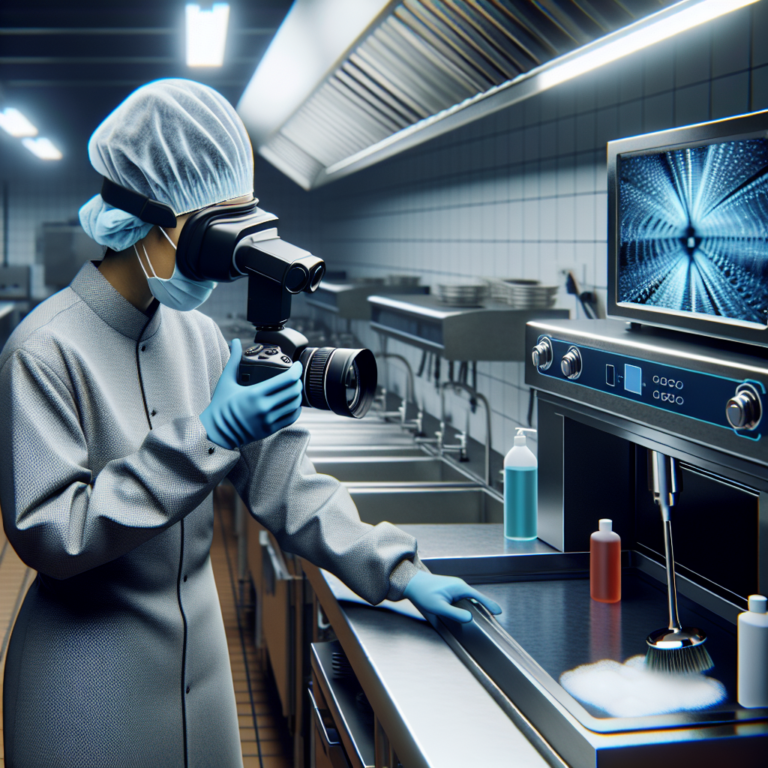Local Health Code Essentials for Restaurant Hood Cleaning Requirements
Understanding Local Health Codes: Hood Cleaning Requirements
Restaurants and commercial kitchens face numerous regulations, and one critical aspect is adhering to local health codes for hood cleaning. These regulations are not just bureaucratic red tape; they are vital for ensuring safety, maintaining cleanliness, and reducing the risk of fire hazards. Let’s dive into how these health codes impact the requirements for commercial kitchen hood cleaning, particularly in places like Toms River, NJ, and why hiring professionals like Jersey Hood Cleaning can make all the difference.
The Importance of Commercial Kitchen Hood Cleaning
Before delving into the health codes, it’s important to understand why commercial kitchen hood cleaning is crucial. Every time you fry a burger, grill a steak, or sauté some veggies, grease particles are released into the air. These particles accumulate in the exhaust hoods, filters, and ductwork of your kitchen. Over time, the buildup becomes a serious fire hazard. In fact, thousands of restaurant fires each year are attributed to unclean hoods and duct systems. By regularly cleaning these areas, you not only comply with health codes but also protect your business, employees, and customers.
Decoding Local Health Codes
Local health codes across various states, including New Jersey, have specific requirements for exhaust hood cleaning. These codes are designed to protect the public from health hazards and ensure that restaurants maintain a hygienic cooking environment. Let’s break down some typical components of these regulations:
- Frequency Requirements: Many local health regulations specify how often hoods should be cleaned. For example, systems serving high-volume operations, like a 24/7 diner or a busy fast-food chain, may require more frequent cleaning compared to those in smaller establishments.
- Standards Compliance: Hood cleaning must be conducted according to standards set by authorities such as the NFPA (National Fire Protection Association), which provides guidelines on the required procedures and techniques.
- Documentation and Inspection: After each cleaning, kitchen owners must maintain documentation and be prepared for inspections by local health authorities to certify compliance.
Health Codes in New Jersey and Toms River, NJ
Specifically focusing on New Jersey, including areas like Toms River, the state has stringent codes. The emphasis is on regular cleaning by certified professionals to ensure all grease and contaminants are thoroughly removed from the exhaust system. Given New Jersey’s requirement for restaurants to display cleanliness standards publicly, adhering to these codes is not just about compliance; it’s also about maintaining a positive reputation.
Why Professional Hood Cleaning is Essential
It might be tempting to handle hood cleaning in-house to save on costs, but this is often not aligned with professional standards. Certified restaurant hood cleaning services, such as those offered by Jersey Hood Cleaning, bring expertise, equipment, and credibility. Here’s why going professional is a smart choice:
- Compliance and Safety: Professionals ensure that the cleaning is thorough and in compliance with the latest health codes, reducing the risk of costly fines or health inspection failures.
- Safety: Professional cleaners use methods and equipment that minimize risk to your staff and prevent accidents.
- Time and Efficiency: What could take your in-house team an entire day can be done efficiently by experts without disrupting your service.
- Proper Disposal: Certified cleaners know how to safely dispose of grease waste in compliance with environmental regulations.
Choosing the Right Hood Cleaning Service in New Jersey
When selecting a hood cleaning service in New Jersey, you want one that not only understands the local regulations but also offers reliability and professionalism. Here’s a checklist for choosing the right service:
- Certification: Verify that the cleaning service is certified and licensed according to state and local laws.
- Experience: Look for firms with extensive experience in the industry, and ideally, those familiar with local business needs.
- Reputation: Client reviews and testimonials can provide insights into the reliability and quality of the service.
- Comprehensive Services: Choose a cleaning service that offers comprehensive cleaning, covering all parts of the exhaust system, including hoods, ducts, and fans.
Final Thoughts
Keeping your commercial kitchen compliant with local health codes is crucial for the safety and success of your business. Regular exhaust hood cleaning is a critical part of this process. By understanding these regulations and hiring the right professionals, you can ensure a clean, safe, and efficient kitchen environment. If you’re in need of reliable, certified services in Toms River NJ, look no further than Jersey Hood Cleaning to ensure your establishment meets all the necessary standards. Compliance with health codes is not just about avoiding penalties; it’s about ensuring a safe place for both staff and patrons in the vibrant restaurant scene of New Jersey.







